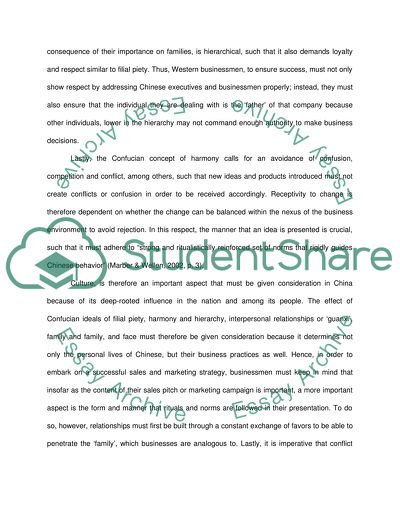Chinese family businesses Essay Example | Topics and Well Written Essays - 500 words. Retrieved from https://studentshare.org/miscellaneous/1512388-chinese-family-businesses
Chinese Family Businesses Essay Example | Topics and Well Written Essays - 500 Words. https://studentshare.org/miscellaneous/1512388-chinese-family-businesses.


